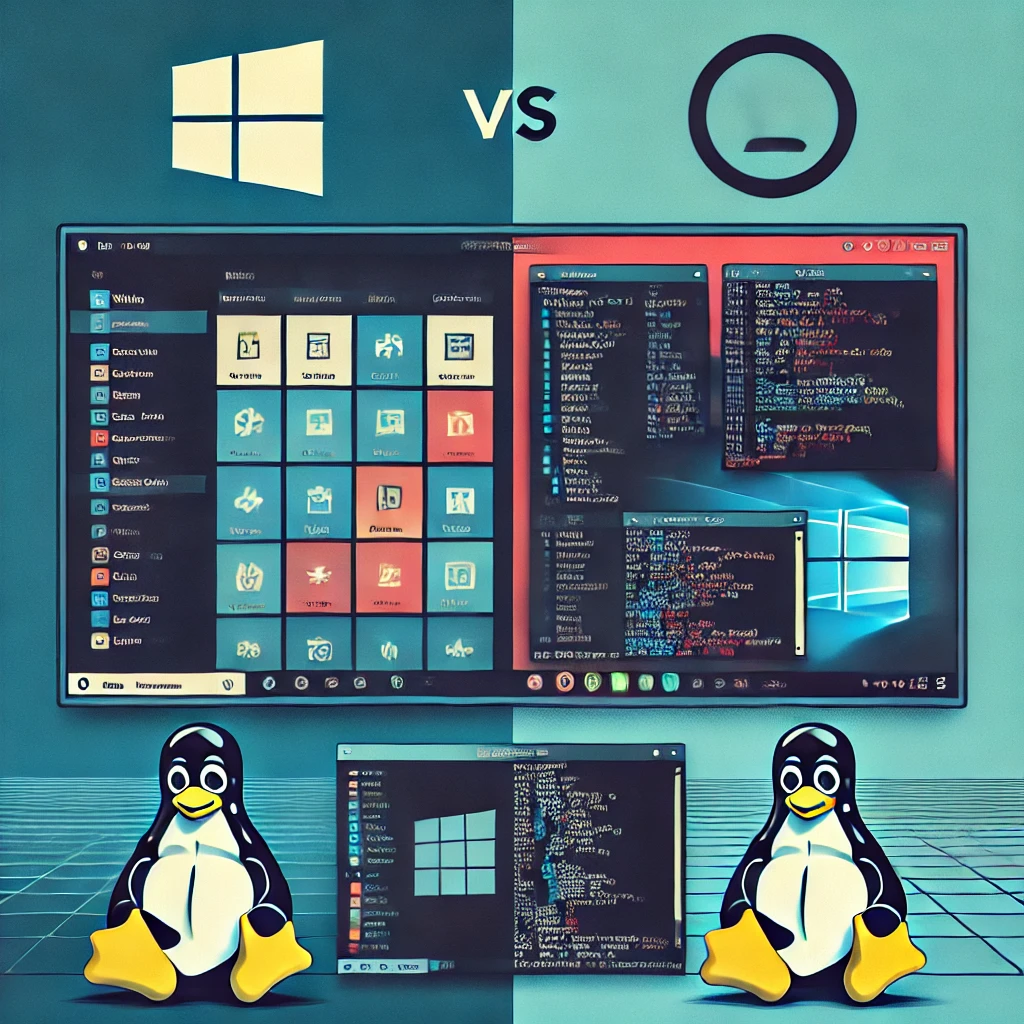
Windows vs Linux (Or a Hidden Conspiracy?)
Some might say this post is biased, but as a strong advocate for Linux-based operating systems, I want to explain why I believe they are the superior choice. I’ll break down five key categories that highlight the benefits of using a Linux-based system.
What is Linux?
Let’s start with a simple definition from Wikipedia:
Linux (/ˈliːnʊks/ LEE-nuuks or /ˈlɪnʊks/ LIN-uuks) is a family of open-source, Unix-like operating systems based on the Linux kernel, which was first released by Linus Torvalds on September 17, 1991. Linux is generally packaged in a distribution.
In short, Linux is a family of open-source operating systems. But what does “open-source” really mean?
Understanding Open Source
Open-source software is a program where the source code is freely available to the public for use, modification, and distribution. This means anyone can modify Linux to suit their needs. But doesn’t that mean someone could alter it for malicious purposes?
Actually, the opposite is true. According to Igor Bidenko, CISO of Simplex Solutions, “Linux is the most secure OS because its source is open. Anyone can review it to ensure there are no bugs or backdoors.” In essence, the open-source community acts as a watchdog, constantly monitoring updates and content for security risks.
I mention this upfront because, like many of you, I take my internet privacy seriously. This is one of the main reasons I switched to Linux instead of continuing to use Windows.
What is Windows?
Now, let’s move on to Microsoft Windows:
Windows is a group of several proprietary graphical operating systems, all developed and marketed by Microsoft.
But what does “proprietary software” mean?
Proprietary software is copyrighted and places restrictions on use, distribution, and modification. The software is owned by the developer (in this case, Microsoft), and users must agree to certain conditions before using it.
So, do I really need to pay for an operating system that’s fully controlled by a corporation? Especially when we know, through sources like Wikipedia and WikiLeaks, that governments often engage in mass surveillance? While I understand the need for national security, I still question how much control over my personal data I’m willing to give up.
In the words of Altaïr from Assassin’s Creed: The Secret Crusade:
“We place faith in ourselves. We see the world as it is and hope that one day all mankind might see the same. What is the world, then? An illusion. One we can either submit to – as most do – or transcend.”
The Freedom of Choice: Linux Distros
Linux offers a range of distributions (distros) designed for different purposes. Whether you’re into gaming, security testing, or a minimalist experience, there’s a Linux distro for you.
- Garuda: Designed for gaming enthusiasts.
- Kali Linux: Perfect for penetration testing (hacking and network security tests).
- Manjaro: Ideal for those who prefer a clean, minimalist environment.
I’ll dive into these distros in more detail in a future post, but the point is, Linux offers freedom of choice, while Windows does not.
Gaming on Linux
Yes, I know some games and software are still unavailable on Linux. For example, I can’t use GameRanger on Linux, which my friends and I rely on for playing DOTA (not DOTA 2). But I’ve found that tools like Steam work perfectly fine on Linux, allowing me to satisfy most of my gaming needs.
Conclusion: Why I Choose Linux
In conclusion, while I do still use Windows for specific software, my personal computer runs exclusively on Linux. The benefits—especially the open-source nature, security, and freedom of customization—outweigh the downsides. Linux is the future, and I encourage more users to explore its possibilities.
If you’re ready to take control of your digital life and explore a more secure and customizable environment, Linux might just be your next operating system.
